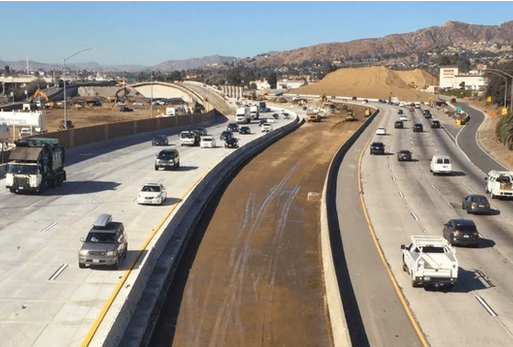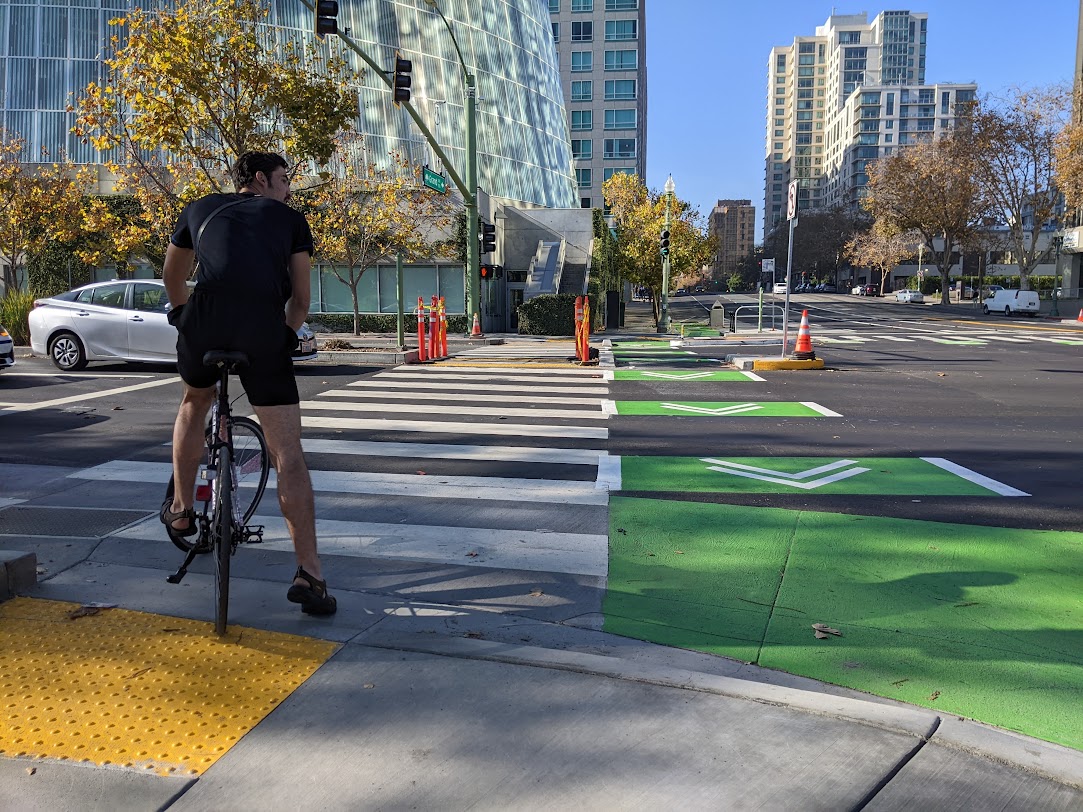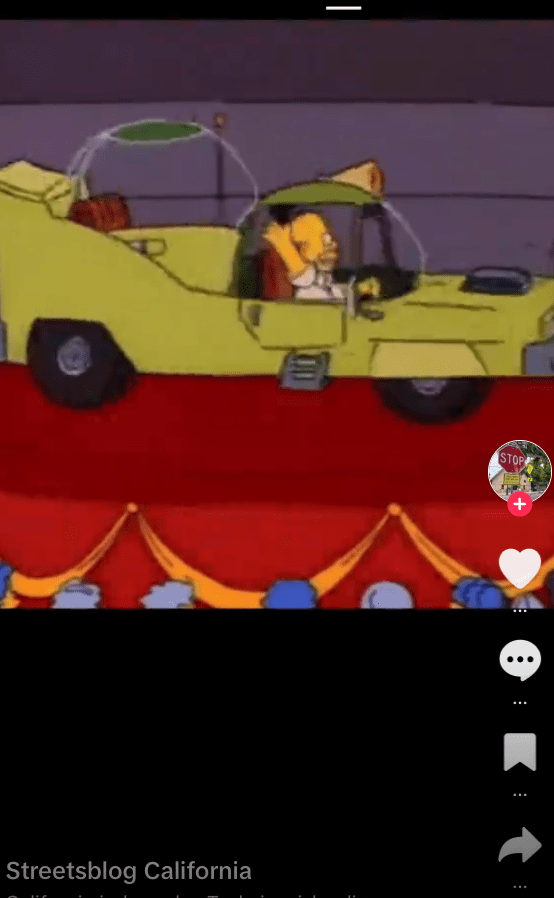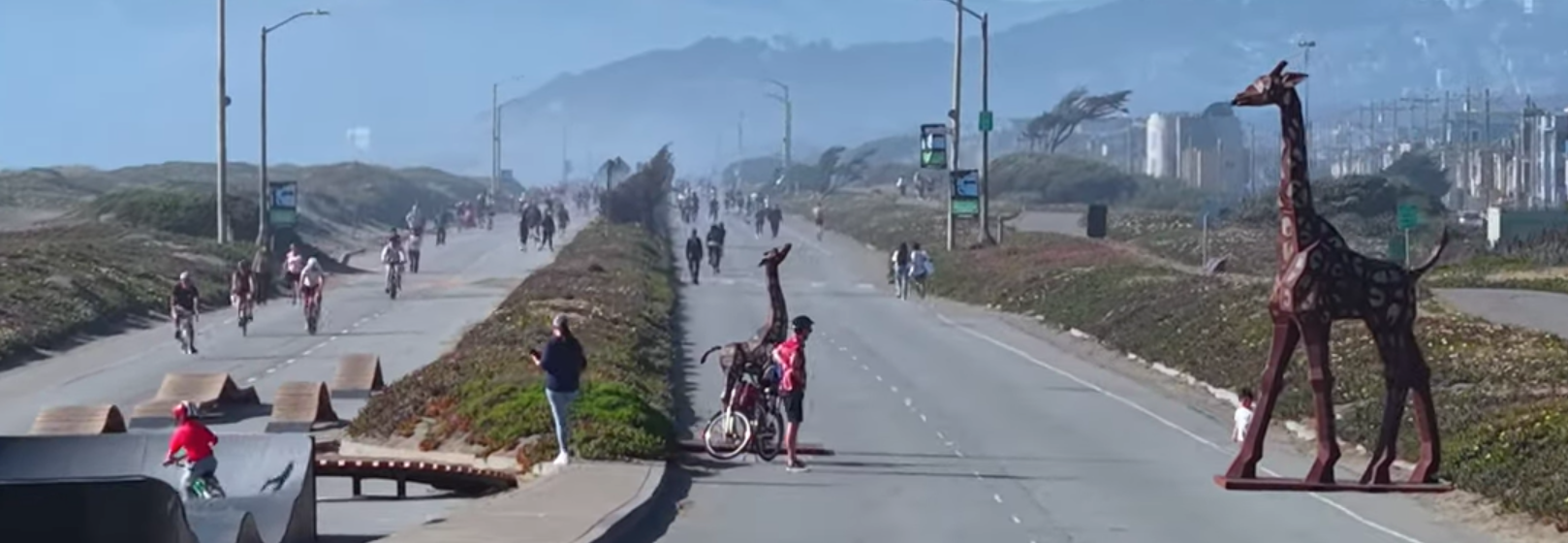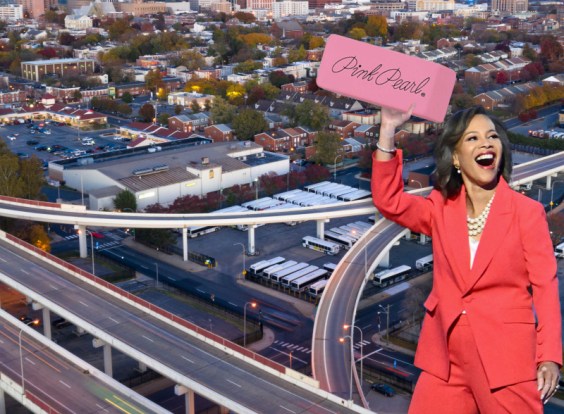Former California Transportation Commissioner Lucy Dunn, along with labor leader Jon Preciado, penned an appalling opinion piece in today's Los Angeles Daily News. The post is part of a rising resistance against policies aimed at reducing overall driving - vehicle miles traveled, or VMT.
Conversations around how to do so have quietly been gaining attention as California grapples with the reality that more than half of its in-state emissions are from transportation, due in part to the fact that for more than fifty years we have been expanding and widening our freeways and roads to make it easier to drive. People like Dunn and Preciado seem to feel personally attacked by any work being done to make it easier not to drive a car.
Here's one gem of a quote from today's post:
You see, in Sacramento, addressing climate change with experimental regulations is more important than making your life easier, your commute shorter, or your gas purchases more efficient.
Putting aside the blatant pandering evident in the quote above, it is shocking that people who should know better would insist that traffic congestion is a more compelling challenge than the climate crisis that is threatening to upend life as you know it.
Rather, it should be shocking, but it is consistent with Lucy Dunn's actions as a member of the state transportation commission, where she consistently championed sprawl, highway building, and driving. Dunn has been fighting the notion that the state could even try to address the number of miles Californians drive ever since it started - finally - bubbling up in state agency hearings.
Whenever the opportunity arose, Dunn made a point of saying that California absolutely must keep building roads to accommodate "edge development" and "greenfield development" (she rarely used the more to-the-point word "sprawl").
So it is peculiarly rich that she uses this op-ed piece to blame Governor Newsom and environmental regulations for increasing traffic congestion. Her actions as commissioner contributed to the problem by accommodating - and thus inducing - ever more driving.
Dunn knows about induced demand - she's been present at many hearings where the concept was discussed and explained. But accepting it as a reality would require a level self-awareness that might force her to acknowledge the harm caused by her ongoing championing of freeways at the cost of state investments in better, safer infrastructure for people using transit and active transportation modes.
It's particularly urgent to discuss all this now, with a lot of money for transportation about to be released from both state and government sources, and not a lot of agreement about how to spend it. Meanwhile freeway builders are lining up to make sure they get, as usual, more than their share - and to perpetuate the problems that they have built up over the years. And "influencers" like Dunn and Preciado are out to make political hay by deriding urgent climate action.
Dunn finds many excuses for her take on these issues. In a 2019 CTC meeting, for example, she blamed public demand: “Balancing climate goals versus the public expectation that they can get where they want to get to with the freedom they demand will be far harder than any of us can imagine.”
When pushed, Dunn has been defensive about the commission's role, and has deflected the conversation away to other topics.
She has also made fun of some of the Air Resources Board's admittedly ineffective strategies, and blamed them for the problems her actions contributed to. "If [the Sustainable Communities Strategy] were as effective as I think it should have been," she told a joint meeting of the Air Resources Board and the CTC in 2019, "we wouldn’t be in a 3.5 million home deficit, and the transportation issues that we still struggle with would be showing far better improvement,” she said.
And out of the other side of her mouth, at that same meeting, she again insisted that the only way California was going to solve its housing crisis was to continue building sprawl.
In 2018, she told the Air Resources Board that their work on transportation emissions was basically fantasy. She told them they should instead focus on the "real world” — “particularly when we talk about reducing VMT.”
In the Daily News post, she writes that "there are no real alternatives to that road or freeway" - um, hello, because she and her colleagues only invested in them? Then she proceeds to rip transit potential to shreds, claims it's not possible to "shop at Costco on a bike or pick up the kids from school on a train" (lots of people do these very things day in and day out, Ms. Dunn), and insists that only cars can provide flexibility and access to jobs and affordable housing. It's the windshield perspective in a nutshell, and it's a horrifying take from someone who has participated in statewide transportation investment decisions. Luckily Dunn's term on the CTC ended a year ago, but the damage has been done.
Let's skip to the end. Dunn finishes her op-ed with this nasty twist:
"We must align climate change goals with housing and transportation goals to achieve a cleaner, more equitable environment and robust economy. But this VMT reduction strategy is ridiculous and counter-productive to making life better for all Californians and their environment."
It's good to know she's happy to celebrate Earth Day with the rest of us! But since she's clearly not only unwilling to actually do anything that might, you know, contribute to saving the planet, and instead is actively working - with op-eds like this - to undermine the work that is being done, maybe she shouldn't be invited to that party.
Creating climate policy is an uphill struggle against naysayers like Dunn.
I don't know what your real world looks like, but mine doesn't include people like Lucy Dunn having an influence on decisions about state transportation investments.
